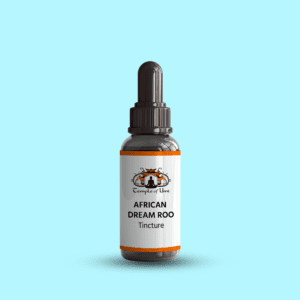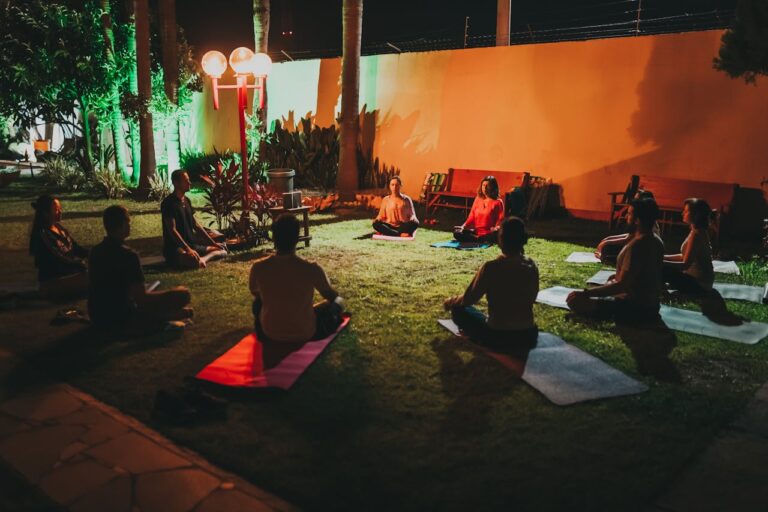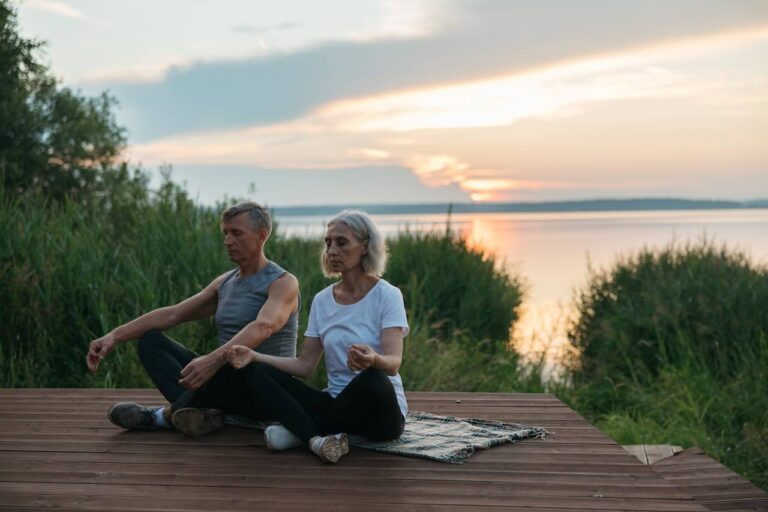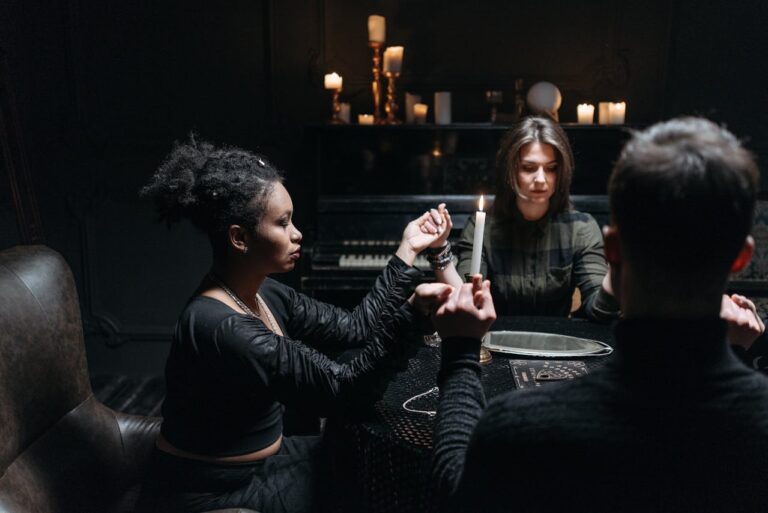Challenges during Ayahuasca ceremonies
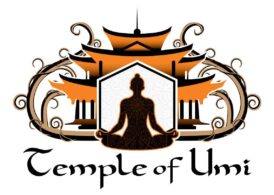
By Temple of Umi

Table of Contents
Discover essential insights into navigating the challenges during Ayahuasca ceremonies. Learn strategies for preparation, coping, and integration for a transformative experience.
Introduction
Ayahuasca, an ancient brew rooted in the traditions of Indigenous peoples of the Amazon basin, has captivated the modern world’s attention. This concoction, made primarily from the Banisteriopsis caapi vine and the Psychotria viridis leaf, has been used for centuries for its potent healing and spiritual properties. In recent years, the interest in Ayahuasca ceremonies has surged, with individuals from across the globe seeking profound spiritual awakening and healing from various mental and physical ailments. This guide aims to unfold the layers of Ayahuasca ceremonies, providing insights into the preparation, the challenges one might face, and how to navigate these experiences with care and respect.
Preparing for the Journey
Understanding Ayahuasca: Composition, origins, and cultural significance Ayahuasca is more than just a psychoactive brew; it’s a bridge to the spiritual world, deeply embedded in the cultural fabric of the Amazonian tribes. The synergy between the vine (which contains harmala alkaloids) and the leaf (rich in the psychedelic compound DMT) creates a transformative and enlightening experience. Understanding the sacredness of Ayahuasca and its role in traditional ceremonies is crucial for those looking to partake in its journey.
Setting Intentions: The importance of mental and emotional preparation Entering an Ayahuasca ceremony with clear intentions can significantly influence the journey’s outcome. Whether seeking healing, guidance, or spiritual growth, the clarity of purpose aids in navigating the ceremony’s challenges. Participants are encouraged to reflect deeply on their reasons for attending and mentally and emotionally prepare for the experiences ahead.
Medical and Health Considerations: Who should avoid Ayahuasca, and why is Ayahuasca not suitable for everyone? Individuals with certain medical conditions, particularly those related to mental health (such as schizophrenia or bipolar disorder) or those on medication (like antidepressants) that can interact negatively with the brew, should avoid Ayahuasca. Comprehensive health screenings and honest discussions with ceremony facilitators can help ensure the safety and well-being of all participants.
Common Challenges Encountered During Ayahuasca Ceremonies
Physical Reactions: Navigating nausea, vomiting, and other bodily responses Physical discomfort, including nausea and vomiting, is a standard part of the Ayahuasca experience, often viewed as a cleansing process. Participants may also encounter dizziness, diarrhea, and hot or cold flashes. Understanding these reactions as part of the journey can help individuals prepare mentally and physically, reducing anxiety around these experiences.
Emotional and Psychological Turbulence: Facing fears, past trauma, and unexpected emotions, Ayahuasca has the profound ability to bring buried emotions, fears, and traumas to the surface. This emotional upheaval can be challenging but is often a critical step in healing. Participants should be prepared for intense emotional and psychological experiences and understand that these are part of the journey toward growth and healing.
Spiritual Intensity: Dealing with overwhelming experiences and spiritual revelations The spiritual dimension of Ayahuasca ceremonies can be awe-inspiring and overwhelming. Visions of encounters with spiritual entities and profound insights are shared, requiring participants to surrender to the experience fully. This aspect of the journey can lead to significant personal transformations, offering new perspectives on life and one’s place in the universe.
The Environmental and Social Context
The Setting: How the Environment Impacts the Ayahuasca Experience
The environment in which an Ayahuasca ceremony takes place plays a crucial role in shaping the participants’ experiences. Key factors include:
- Natural Surroundings: Ceremonies in serene, natural settings often enhance the spiritual journey, promoting a deeper connection with nature.
- Comfort and Safety: A safe, comfortable environment helps participants feel secure, allowing them to fully open up to the experience.
- Acoustic Environment: Traditional chants or Icaros and the sounds of the surrounding nature significantly influence the emotional and spiritual depth of the experience.
Group Dynamics: The Role of Participants and Facilitators in Managing Challenges
The collective energy of the group and the guidance provided by facilitators are pivotal in navigating the challenges of Ayahuasca ceremonies:
- Supportive Community: A cohesive group offers emotional support, helping individuals through difficult moments or intense experiences.
- Experienced Facilitators: Skilled leaders guide the ceremony, ensuring that participants’ experiences are safe and meaningful. They manage the flow of the ceremony, offer comfort, and interpret experiences.
- Shared Experience: The communal aspect fosters a sense of unity and understanding, aiding in the collective and individual healing processes.
Safety and Ethical Considerations
Choosing the Right Guide: The Importance of Experienced Facilitators
Selecting an experienced and trustworthy facilitator is paramount for a safe Ayahuasca journey:
- Qualifications and Experience: A facilitator’s background, training, and experience in leading ceremonies are crucial for safety and the effectiveness of the experience.
- Empathy and Understanding: The right guide possesses knowledge and empathy, offering support and guidance through challenging moments.
Cultural Respect and Appropriation: Navigating the Fine Line
Engaging with Ayahuasca requires sensitivity towards the cultural origins and practices surrounding its use:
- Acknowledging Origins: Recognize and respect Ayahuasca’s indigenous roots, understanding its significance within those cultures.
- Avoiding Appropriation: Engage in practices that honor its traditions without commodifying or stripping them of their cultural significance.
Legal Status: Understanding the Legal Complexities of Ayahuasca Use in Different Regions
The legal landscape of Ayahuasca varies significantly around the world:
- Country-Specific Laws: Some countries allow regulated use for religious or therapeutic purposes, while others strictly prohibit it.
- Navigating Legalities: It’s essential to research and understand the legal status of Ayahuasca in your region to avoid legal repercussions.
- Advocacy and Reform: Advocates work towards legal recognition and safe, respectful use, emphasizing its potential therapeutic benefits.
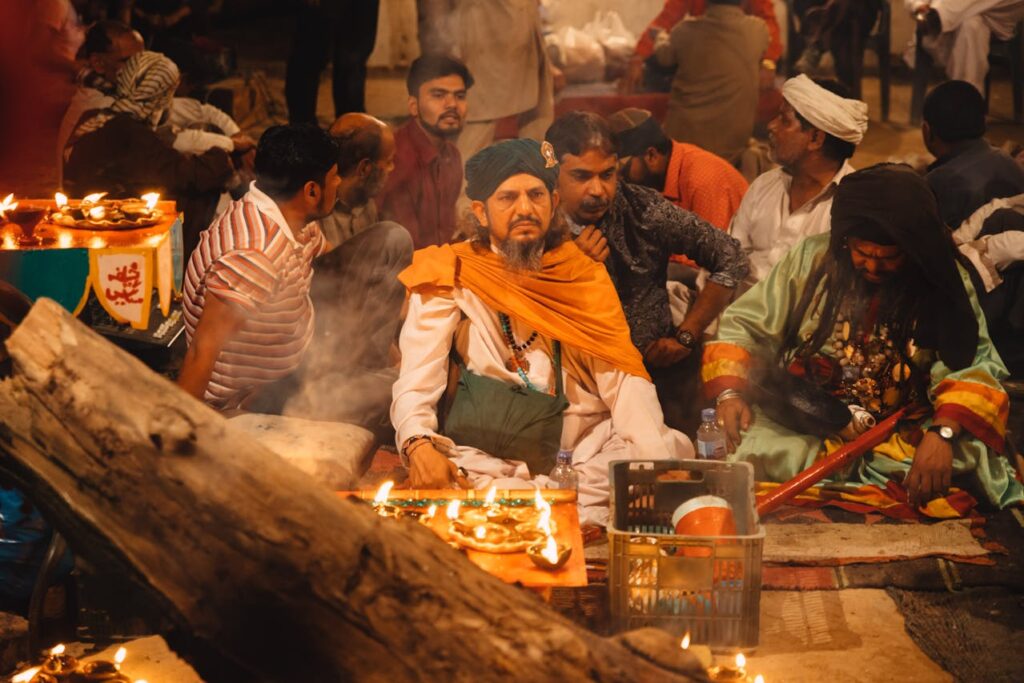
Overcoming Challenges
Navigating the profound journey of an Ayahuasca ceremony can present numerous challenges, but with the right strategies and support, individuals can emerge more robust and enlightened. Understanding how to manage these experiences is crucial for anyone considering this spiritual voyage.
Strategies for Managing Difficult Experiences: Tips and practices for participants
- Stay Present: Focus on your breathing and remain in the moment. Challenging experiences are often temporary and can lead to significant personal growth.
- Set Intentions, Not Expectations: Enter the ceremony with a clear intention but release expectations of specific outcomes to reduce frustration and resistance.
- Safe Space Creation: Before attending a ceremony, ensure a safe, comfortable environment with trustworthy facilitators. This setting can significantly impact your ability to navigate challenges.
- Use of Integration Tools: Journaling, meditation, and creative expression such as drawing or music can be powerful tools for processing your experiences during the ceremony.
Integration: Making sense of the Ayahuasca journey in everyday life
- Reflect and Journal: Take time post-ceremony to reflect on your experiences. Journaling can help process complex emotions and insights.
- Seek Meaningful Connections: Engage in discussions with fellow participants or others who have gone through similar experiences. Sharing perspectives can offer new insights and mutual support.
- Professional Guidance: Consider speaking with a therapist or counselor experienced in psychedelic integration to help make sense of your journey and apply its lessons in your life.
Support Systems: The role of community and professional help post-ceremony
- Community Support: Joining support groups or online forums dedicated to Ayahuasca can provide a sense of belonging and understanding from those who have undergone similar experiences.
- Professional Help: For those struggling to integrate their experiences, professional counselors specializing in psychedelic therapy can offer invaluable support, providing tools and frameworks to understand and apply the lessons learned.
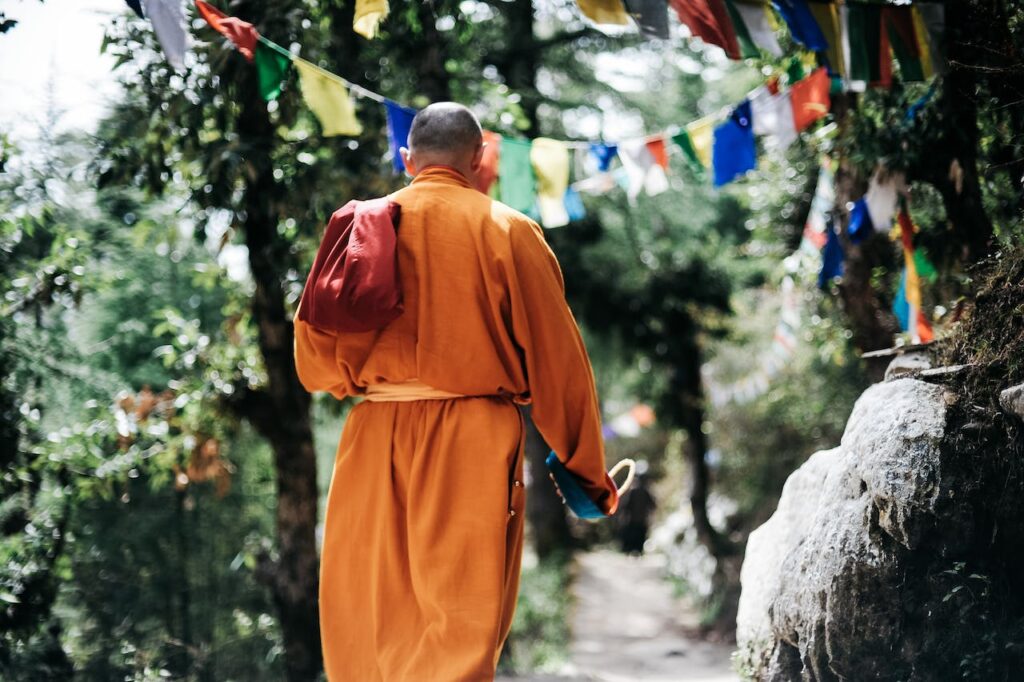
Final words
The journey of an Ayahuasca ceremony can be as challenging as it is transformative, highlighting the importance of preparation, understanding, and support. Participants can navigate these challenges more effectively by employing strategies to manage difficult experiences, actively working on integration, and leveraging both community and professional support systems. It is imperative to approach Ayahuasca ceremonies with respect, responsibility, and an openness to the profound changes they can bring to one’s life. Remember, the goal is to experience Ayahuasca, learn from it, and integrate these lessons into our daily lives, fostering growth, healing, and understanding.
- What is Ayahuasca?
- Where to get Ayahuasca in the USA
- Top Ayahuasca retreats in the USA. Learn more.
- Cost of Ayahuasca Retreat: Balancing Cost and Experience. Learn more.
- What is trauma bonding?
- A Journey into the Healing Properties of Psychedelic Mushrooms. Learn more.
- Ayahuasca Retreat Georgia – Experience Spiritual Awakening
- Spiritual Retreats Georgia
- Shaman in America Exploration
- Shamanism – Shamanic healing
- Sacred Plant Medicine Retreats in Georgia
- 5 Ayahuasca Retreats in California Worth Exploring
- 7 Best Aya Retreats in America. Click here.
- Mcdonough Ayahuasca retreat
- Conley Ayahuasca retreat
- Whitesburg Ayahuasca retreat
- Brooks Ayahuasca retreat
- Gay Ayahuasca retreat
- Williamson Ayahuasca retreat
- Orchard Hill Ayahuasca retreat
- Glenn Ayahuasca retreat
- Luthersville Ayahuasca retreat
- Shady Dale Ayahuasca retreat
- Bowdon Junction Ayahuasca retreat
- Sargent Ayahuasca retreat
- Greenville Ayahuasca retreat
- Lovejoy Ayahuasca retreat
- Winston Ayahuasca retreat
- Rutledge Ayahuasca retreat
- Moreland Ayahuasca retreat
- Molena Ayahuasca retreat
- Lebanon Ayahuasca retreat
- Good Hope Ayahuasca retreat
- Haralson Ayahuasca retreat
- An Inclusive List of Psychedelic Quotes
- Mount Ayahuasca retreat
- Grantville Ayahuasca retreat
- Pine Lake Retreat near
- Rydal Ayahuasca retreat
- Porterdale Ayahuasca retreat
- Waco Ayahuasca retreat
- Temple Ayahuasca retreat
- Bethlehem Ayahuasca retreat
- Jenkinsburg Ayahuasca retreat
- Adairsville Ayahuasca retreat
- Red Oak Ayahuasca retreat
- Woodbury Ayahuasca retreat
- Cassville Ayahuasca retreat
- Redan Ayahuasca retreat
- North Decatur Ayahuasca retreat
- Grantville Ayahuasca retreat
- Hillsboro Ayahuasca retreat
- Jackson Ayahuasca retreat
- Braselton Ayahuasca retreat
- Zebulon Ayahuasca retreat
- Flovilla Ayahuasca retreat
- Auburn Ayahuasca retreat
- Warm Springs Ayahuasca retreat
- Scottdale Ayahuasca retreat
- Lithia Springs Ayahuasca retreat
- Villa Rica Ayahuasca retreat
- Grayson Ayahuasca retreat
- Sunny Side Ayahuasca retreat
- Senoia Ayahuasca retreat
- Locust Grove Ayahuasca retreat
- Chamblee Ayahuasca retreat
- Fairburn Ayahuasca retreat
- Snellville Ayahuasca retreat
- Monticello Ayahuasca retreat
- Union City Ayahuasca retreat
- Tallapoosa Ayahuasca retreat
- Bremen Ayahuasca retreat
- Hampton Ayahuasca retreat
- Monroe Ayahuasca retreat
- Marble Hill Ayahuasca retreat
- Madison Ayahuasca retreat
- Dawsonville Ayahuasca retreat
- Felton Ayahuasca retreat
- Concord Ayahuasca retreat
- Mansfield Ayahuasca retreat
- Taylorsville Ayahuasca retreat
- Roopville Ayahuasca retreat
- Turin Ayahuasca retreat
- Franklin Ayahuasca retreat
- Clarkdale Ayahuasca retreat
- Talking Rock Ayahuasca retreat
- Jersey Ayahuasca retreat
- Kingston Ayahuasca retreat
- Bostwick Ayahuasca retreat
- North Metro Ayahuasca retreat
- Meansville Ayahuasca retreat
- Social Circle Ayahuasca retreat
- White Ayahuasca retreat
- Rhode Island Ayahuasca retreat
- Maryland Ayahuasca retreat
- Delaware Ayahuasca retreat
- New Jersey Ayahuasca retreat
- Connecticut Ayahuasca retreat
- Massachusetts Ayahuasca retreat
- Hampshire Ayahuasca retreat
- Pennsylvania Ayahuasca retreat
- New York Ayahuasca retreat
- Florida Ayahuasca retreat
- South Carolina Ayahuasca Retreat
- North Carolina Ayahuasca Retreat
- West West Virginia Ayahuasca retreat
- Virginia Ayahuasca retreat
- Ohio Ayahuasca retreat
- Alabama Ayahuasca retreat
- Mississippi Ayahuasca retreat
- Tennessee Ayahuasca retreat
- Kentucky Ayahuasca retreat
- IndianaAyahuasca retreat
- ILLINOIS Ayahuasca retreat
- Missouri Ayahuasca retreat
- Arkansas Ayahuasca retreat
- Louisiana Ayahuasca retreat
- Texas Ayahuasca retreat
- Oklahoma Ayahuasca retreat
- KansasAyahuasca retreat
- Ayahuasca retreats near me in Experiment.
- A wellness retreat in Georgia
- What is Ayahuasca?
- Embark on a Journey of Transformation with Spiritual Healing
- Unveiling Healing Energy at the Temple of Umi
- 10 Energy Healing Techniques to Transform Your Life
- Where to get Ayahuasca in the USA
- Top Ayahuasca retreats in the USA. Learn more.
- Cost of Ayahuasca Retreat: Balancing Cost and Experience. Learn more.
- What is trauma bonding?
- A Journey into the Healing Properties of Psychedelic Mushrooms. Learn more.
- Ayahuasca Retreat Georgia – Experience Spiritual Awakening
- Spiritual Retreats Georgia
- Shaman in America Exploration
- Shamanism – Shamanic healing
- Shaman Healing Guide
- Ayahuasca ceremonies Ayahuasca ceremonies near you in the USA
- Ayahuasca Experience
- DMT Journey, Benefits, and Side Effects
- Iowaska – What is it?
- Plant medicine retreats in Georgia
- Why massage is beneficial, according to a cardiologist.
- Are mushrooms truffles – What Is a Truffle?
- 11 Best Ayahuasca Retreats in the USA for Spiritual Healing
- What is Rapé?
- What is a Tincture?
- Where to find Ayahuasca near me
- Healing retreats USA
- Best Retreats USA

